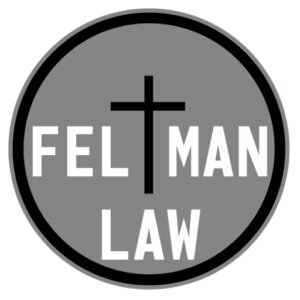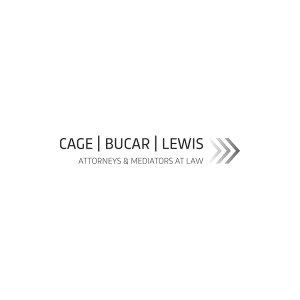Best Domestic Violence Lawyers in Colorado
Share your needs with us, get contacted by law firms.
Free. Takes 2 min.
Free Guide to Hiring a Family Lawyer
Or refine your search by selecting a city:
List of the best lawyers in Colorado, United States
About Domestic Violence Law in Colorado, United States
Domestic violence is taken very seriously under Colorado law. In Colorado, domestic violence refers not only to physical acts but also to emotional, economic, and psychological abuse when these actions occur between individuals who are or have been in an intimate relationship. The intention of Colorado domestic violence laws is to protect victims and hold offenders accountable, while also providing resources for recovery and prevention. Even threats or intimidation without physical harm can be prosecuted as domestic violence in the state. Law enforcement officers in Colorado are required to make mandatory arrests when they have probable cause to believe domestic violence has occurred.
Why You May Need a Lawyer
Seeking the assistance of a qualified lawyer is important for anyone involved in a domestic violence situation, whether as an alleged victim or as a person accused. Legal representation can be crucial in the following situations:
- Obtaining or defending against a restraining order (also called a protection order)
- Understanding your rights after being arrested or charged with domestic violence
- Protecting your parental rights in custody or divorce proceedings impacted by a domestic violence allegation
- Navigating police investigations and criminal court processes
- Addressing false allegations or wrongful accusations
- Accessing victim support services and compensation
- Complying with required counseling or rehabilitation programs
- Restoring firearm rights and addressing employment concerns related to a domestic violence conviction
Legal advice is essential because domestic violence cases can have serious long-term effects on your personal life, criminal record, and future opportunities.
Local Laws Overview
Colorado domestic violence laws have several distinctive features that everyone should understand:
- Definition: Domestic violence includes any act or threatened act of violence against someone with whom the accused has had an intimate relationship, including current or former spouses, dating partners, or co-parents.
- Mandatory arrest: Law enforcement in Colorado must arrest the suspected offender if there is probable cause to believe domestic violence has occurred. The intent is to provide immediate safety for the victim.
- Protection orders: Courts will generally issue a mandatory protection order when domestic violence charges are filed. These orders may restrict contact, residence, or communication with the alleged victim.
- Firearm restrictions: Federal and Colorado state laws prohibit individuals convicted of domestic violence offenses from possessing firearms or ammunition.
- Prosecution policies: Prosecutors cannot drop or dismiss domestic violence charges purely at the victim’s request. These cases are usually pursued based on the evidence.
- Sentencing and treatment: Convictions often require offenders to undergo a treatment program specifically designed for domestic violence.
- Collateral consequences: A conviction can impact a person’s employment, housing, and parental rights, and may not be eligible for sealing from your record.
Frequently Asked Questions
What is considered domestic violence in Colorado?
Domestic violence includes any violence or threat of violence against a person with whom the accused has an intimate relationship. This can include physical harm, threats, intimidation, harassment, or destruction of property.
Is an arrest required for every domestic violence call to the police?
If law enforcement has probable cause to believe domestic violence has occurred, Colorado law requires them to make an arrest, even if the alleged victim does not want to press charges.
Can a victim drop domestic violence charges?
No, only the prosecutor can decide whether to move forward with or drop charges. Even if the victim wants to stop the process, the case will typically proceed if the prosecutor thinks there is enough evidence.
What happens after someone is arrested for domestic violence?
Generally, a mandatory protection order is issued, and the accused may not contact the alleged victim. The accused will appear in court, and the prosecutor will decide whether to formally file charges.
Do domestic violence convictions affect gun ownership?
Yes, a misdemeanor or felony conviction for domestic violence usually results in the loss of the right to possess firearms under Colorado and federal law.
Are domestic violence charges eligible for sealing or expungement?
Most domestic violence convictions in Colorado are not eligible for sealing or expungement, meaning they can remain on your criminal record permanently.
Can someone lose custody of their children due to domestic violence?
Yes, family courts consider domestic violence when making custody decisions, and it can significantly impact parental rights and visitation arrangements.
What is a protection order?
A protection order, also called a restraining order, is a legal order that can restrict someone from contacting, visiting, or going near the victim or certain locations.
What happens if someone violates a protection order?
Violating a protection order is a criminal offense and can result in additional charges, possible jail time, and other legal consequences.
Can I be charged with domestic violence for property damage?
Yes, in Colorado, damaging property that belongs to, or is co-owned with, an intimate partner can be prosecuted as a form of domestic violence if the intent is to coerce, control, punish, or intimidate.
Additional Resources
- Colorado Coalition Against Domestic Violence (Violence Free Colorado): Offers support and information for survivors and advocates statewide.
- Colorado Judicial Branch: Provides detailed guides on protection orders, filing procedures, and court processes.
- Denver Domestic Violence Coordinating Council: Assists with local resources and support in Denver and surrounding areas.
- Rocky Mountain Victim Law Center: Offers legal support and victim advocacy services.
- National Domestic Violence Hotline: Provides 24/7 confidential support and referrals.
- Legal Aid Organizations: Many local legal aid societies in Colorado offer free or sliding scale services for domestic violence cases.
Next Steps
If you are experiencing domestic violence or have been accused, here are some recommended steps to take:
- Contact law enforcement if you are in immediate danger.
- Consult with a qualified attorney as soon as possible to understand your rights and options.
- Preserve any evidence, such as messages, photographs, and records of incidents.
- Seek counseling or victim support services if you need emotional or practical help.
- If a protection order is issued, comply fully with its terms to avoid further legal troubles.
- Prepare for court proceedings by reviewing your legal options with your attorney, including potential defenses or the process for seeking protection.
- Explore community resources listed above for ongoing support and guidance.
Taking action quickly and seeking appropriate legal advice is essential to safeguard your rights, well-being, and future in any domestic violence situation in Colorado.
Lawzana helps you find the best lawyers and law firms in Colorado through a curated and pre-screened list of qualified legal professionals. Our platform offers rankings and detailed profiles of attorneys and law firms, allowing you to compare based on practice areas, including Domestic Violence, experience, and client feedback.
Each profile includes a description of the firm's areas of practice, client reviews, team members and partners, year of establishment, spoken languages, office locations, contact information, social media presence, and any published articles or resources. Most firms on our platform speak English and are experienced in both local and international legal matters.
Get a quote from top-rated law firms in Colorado, United States — quickly, securely, and without unnecessary hassle.
Disclaimer:
The information provided on this page is for general informational purposes only and does not constitute legal advice. While we strive to ensure the accuracy and relevance of the content, legal information may change over time, and interpretations of the law can vary. You should always consult with a qualified legal professional for advice specific to your situation.
We disclaim all liability for actions taken or not taken based on the content of this page. If you believe any information is incorrect or outdated, please contact us, and we will review and update it where appropriate.
Browse domestic violence law firms by city in Colorado
Refine your search by selecting a city.












